FAMFEST Chile 2025: International Family Theatre Showcase
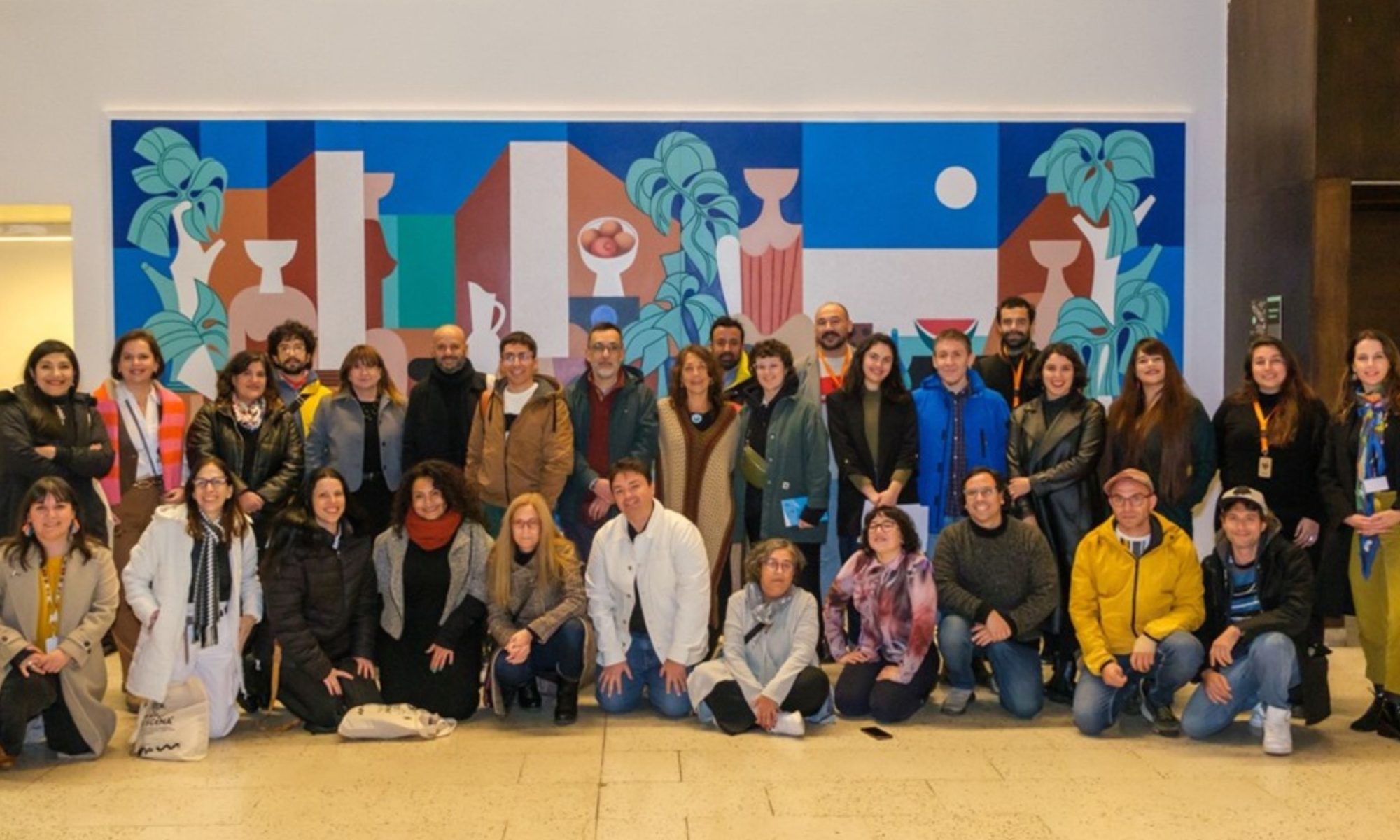
This summer, Future Arts Centres supported Sophie Cade, Artistic Programme Manager at The Met in Bury, to attend FAMFEST Chile, an international festival celebrating theatre and performance for children and young people. Representing our network at the festival’s professional programme, Expoescena, Sophie spent a week immersed in showcases, workshops and conversations with fellow programmers from across Latin America and beyond.
In this blog, Sophie shares reflections from her time in Santiago and the inspiration she’s bringing back to help grow The Met’s offer for young audiences in Greater Manchester.
————————————————————-
A few weeks ago, I had the absolute pleasure of attending FAMFEST 2025 in Santiago, Chile – the eighteenth edition of the Festival Internacional de Teatro Familiar. It is a festival that brings together the magic of theatre, dance, music, puppetry, and more, all aimed at children, young people and families. More specifically, a week of the festival is dedicated to programmers and agents in the field of performing arts and young audiences. Expoescena includes four days of meetings, conversations, workshops, exchange markets, showcases, performances and networking. My trip was supported by Future Arts Centres and The Met.
I was excited to attend this festival for multiple reasons. Having worked in the programming team at The Met, Bury for seven years, I absorbed full programme responsibility of our approximate 250 shows/events per year at the beginning of 2025. This put me in a unique position of reflection and to diversify, develop and support a growing, exciting family theatre and performing arts offer for both Bury and Greater Manchester communities.
As an organisation, our family theatre audiences have grown year on year since introducing a Christmas pantomime (in partnership with Big Tiny Productions) in 2022. We are committed to retaining these audiences and widening their engagement throughout the calendar year with high quality, accessible and inspiring work. We aim to provide a programme offer that creates regular family engagement and allows them to grow alongside us. There is a clear need in Bury’s community for low cost, high quality, regular family experiences and so when this opportunity arose, it was perfect timing for me. My main reason for attending was to be inspired by the range and scope of quality work and to bring my learning back to The Met to embed and grow our family programme offer. Ideally, The Met wants all Bury audiences and communities to engage with the organisation from as young an age as possible; it’s clear that the benefits of engaging at a young age continue through life and have an incredibly positive impact on the individual from both a wider learning and development perspective.
FAMFEST’s ethos is that theatre is a right for all children and not just a luxury for some – many shows are free of charge to attend, with financial barriers removed from shows particularly in wider community venues. Like The Met, accessibility and inclusivity runs deep in the festival’s values and programming design, with hundreds of performances across 12 districts of Santiago. A particular highlight was the impressive number of shows that included Chilean Sign Language.
As part of a wider group of international venue and festival programmers, most of my week was spent in Santiago’s impressive main centre for culture, GAM – named after Chilean intellectual, children’s right activist and Nobel Prize winning Gabriela Mistral.
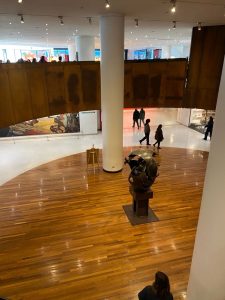
Having spent my first couple of days in Santiago getting over the jet lag and exploring what the city had to offer*, I met my network of fellow programmers during a project pitch session; a chance for creative initiatives to stand out for their content and innovation. Also featured were successful case studies from both national and international projects working with and for children. A welcome reception followed which gave us all a chance to get to know each other over a glass of delicious Chilean wine! I was the only programmer to attend not just from the UK but from the whole of Europe and despite some language barriers, it was both fun and inspiring to meet programmers, producers, artists and creatives who had flown in from all over Latin America.
*I recommend local villages Lastarria, Providencia, and Bellavista for great, independent food and drink spots. I also recommend getting the funicular up the San Cristóbal Hill and the cable car back down for the best views!
The following day, I was delighted to take part in the ‘Expoescena Market’ which provided the opportunity for me to meet with theatre makers, producers and creative organisations from across Latin America on a 1-2-1 basis.
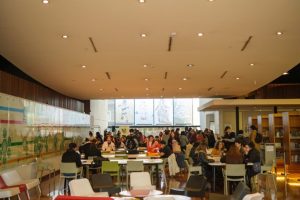
I was presented with individual works where we discussed local opportunities, international collaborations and barriers faced when it came to programming work for children and young people. It was clear from this that the work being created in this part of the world is innovative, accessible and of high quality. The work being produced was varied – some still in the development stages and others ready to tour across Europe and into the UK.
Thanks to the expert organisation of FAMFEST Deputy Director Pamela López the weekend was jam packed with live performances all across the city of Santiago. Highlights included:
- The Flamingos’ Stockings by La Hermosa Compañía (Chile) – an inquisitive performance by an entirely deaf cast using Chilean Sign Language, with animals’ sound effects provided by voice over artists side stage. We were joined by a couple of very young school groups for this performance, who all stayed absolutely fixated throughout!
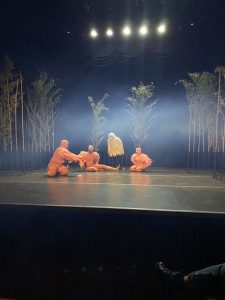
- The Fable of Pedro (Italy) – a riveting, hour long, good vs evil story told entirely using shadow puppets by just one man and two torches. The children in the audiences were laser focused throughout, and were all encouraged to create their own shadow puppet on the walls of the venue after the show.
- On The Tightrope (Chile) – a bittersweet puppetry show telling the tale of how a child understands and navigates the loss of a close family member in a tight family unit. There were themes of self-expression, imagination and creativity, and emotional intelligence. I found the attention to detail on this performance in particular, including multiple sets, costumes and even the smallest of mannerisms of characters/puppets was exceptional.
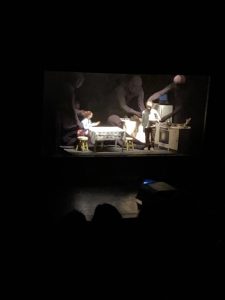
- A Forest (Chile) – a physical and non-verbal storytelling show of three friends who wander through an enchanted forest of discoveries. Children were invited to play together and engage with small, crafted objects made during the show – all in their own time. I could really feel the children settling into what must have felt like a sense of community and belonging for them.
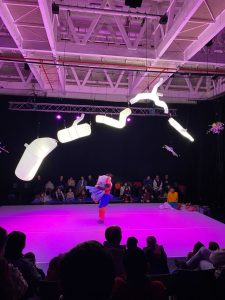
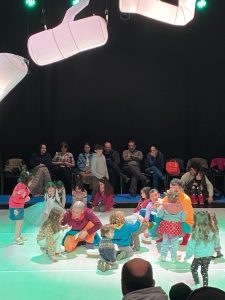
- The Carnival of the Animals (Chile) – Conceived as an ode to animal beauty and majesty, this spectacle invited audiences to contemplate with open senses and to be carried away by live music, creativity and visuality. The theatre company very kindly invited us backstage after the show to meet them and some of their brilliant creations!
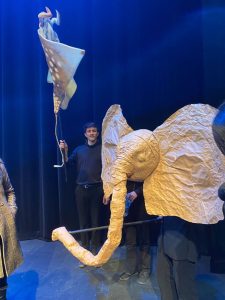
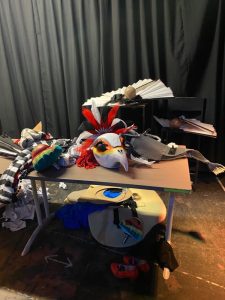
As a collective, programmers were also invited to take part in a workshop which encouraged us to think about and discuss current cultural offerings for children and young people in our respective localities. This was an incredibly engaging session where we debated on and discussed topics such as policies, funding, access, barriers and worked together to build on opportunities for the future with concrete actions to strengthen collaborative networks. The most exciting action point I found to come out of this session was the understanding and acknowledgement that organisations from across Latin America need to – and more excitedly, have the means to – work collaboratively to strengthen the family arts offer across the continent.
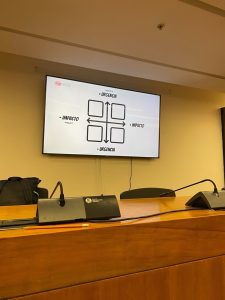
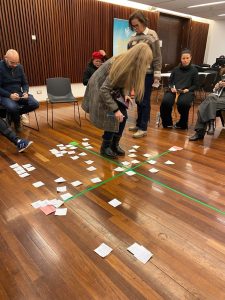
As a city, it’s clear to see why Santiago has been such a successful home to this outstanding festival over the years; it’s a vibrant and creative place from morning until night and it clearly has the appetite needed from families and young people to access the arts. There’s obviously work to do to bridge the gap between UK families accessing inspiring and culturally diverse arts from overseas and across continents. So, this is where I’d encourage other arts centres, venues, cultural organisations, networks and spaces for children to think about how they might be able to help.
For The Met, it’s an exciting time for us right now. Having just celebrated our 50th Anniversary, we plan to welcome the next 50 years with the same bold and ambitious attitude that’s gotten us to where we are today. We will continue to launch new and develop existing opportunities for artists from across the world, whilst inspiring the next generation of local children and communities along the way. But the bottom line is – collaboration is key.
It’s about multiple, UK wide spaces having a shared sense of programming aims to not just support international artists and – let’s be honest – take a share of their inevitably large touring budgets, but to do so in the knowledge that the highest beneficiaries are the most important ones – children, young people and families.
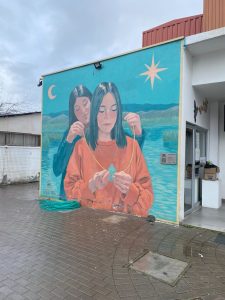
I’d like to give a special thanks to Pamela López and Andrea Pérez de Castro Montero for organising such a wonderful festival and for welcoming me with such open arms. Thanks to all the other programmers, producers, artists, and creatives I met during my time in Santiago for being so welcoming, friendly and having a great sense of humour!
Thanks to my very own personal translator Camila Le-bert for helping me through the language barrier with absolute ease and finally thanks to Future Arts Centres and The Met for supporting and making the whole trip happen.
————————————————————-
Future Arts Centres is proud to have supported Sophie’s visit to FAMFEST Chile as part of our ongoing commitment to international exchange and learning. Huge thanks to Sophie for sharing her experiences. If you’re a network member interested in finding out more, Sophie is happy to be contacted for a conversation.